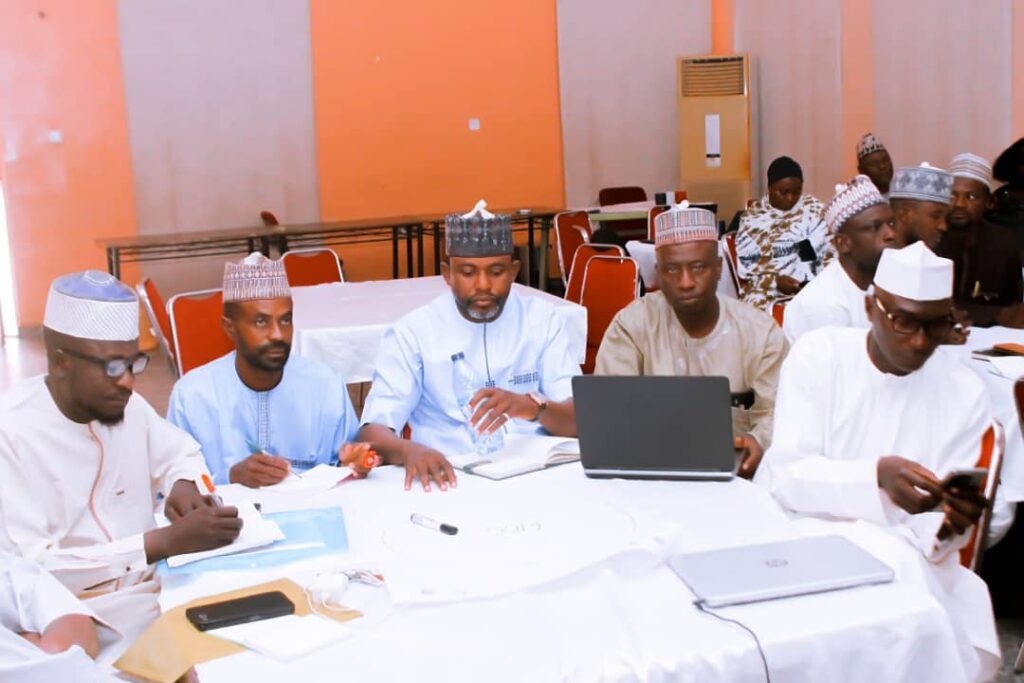The Sokoto State Field Office of UNICEF, in collaboration with the Ministry of Information, has organized a four-day Training of Trainers on Community Engagement and Accountability for its partners from Sokoto, Kebbi, and Zamfara States.
The training aimed to enhance participants’ capacity to engage effectively with communities and improve accountability in service delivery across various sectors.
The training commenced with opening remarks by Mallam Lukman Abubakar, representing the Sokoto State Primary Healthcare Development Agency.
He welcomed participants and encouraged them to engage actively in the sessions, emphasizing the importance of utilizing the knowledge gained from UNICEF specialists to strengthen community engagement and governance.
He also expressed gratitude to UNICEF for its continued support of the three states.
In his remarks, Ibrahim Haruna, Head of Social and Behavior Change (SBC) at UNICEF Sokoto Field Office, welcomed the participants and outlined the objectives and expected outcomes of the training.
He urged participants to make the most of the sessions and apply the knowledge in their respective organizations.
The training featured paper presentations by UNICEF’s SBC specialists and other facilitators, covering critical topics, including:
The training provided a comprehensive overview of UNICEF’s key sectors and their relevance to community engagement and accountability:
Health – Strengthening healthcare services, improving maternal and child health, immunization programs, and addressing common health challenges in communities.
Nutrition – Addressing malnutrition, promoting exclusive breastfeeding, and implementing strategies to improve child and maternal nutrition.
Education – Enhancing access to quality education, promoting inclusive learning, and addressing barriers to school enrollment and retention.
Water, Sanitation, and Hygiene (WASH) – Ensuring access to clean water, improving sanitation facilities, and promoting hygiene practices to prevent diseases.
Child Protection – Safeguarding children’s rights, preventing child abuse, and ensuring proper legal and social support for vulnerable children.
Social Policy – Strengthening social protection programs, improving policy frameworks, and addressing poverty and inequality issues.
Accountability to Affected Populations (AAP) – Ensuring that communities are actively involved in decision-making processes and that their feedback is integrated into service delivery.
Community Engagement – Enhancing participatory approaches, building trust between communities and service providers, and promoting inclusive governance.
The Participants actively engaged in discussions, sharing experiences and best practices in community engagement and service delivery. Key insights from the discussions included:
The a need for improved communication strategies to ensure communities understand and trust government intervention. Strengthening monitoring and feedback mechanisms to enhance accountability and responsiveness.
Building partnerships between government agencies, development partners, and community leaders to improve service delivery.
The training aimed to equip participants with the skills and knowledge to cascade the training to their respective organizations.
Strengthen community engagement mechanisms in Sokoto, Kebbi, and Zamfara States and enhance transparency and accountability in service delivery as well as Improve coordination between government agencies and communities.
The training concluded with a call to action for participants to implement the knowledge gained in their respective roles.
UNICEF and the Ministry of Information reaffirmed their commitment to supporting community engagement and accountability efforts. Plans for follow-up training and monitoring of implementation were also discussed.
The participants expressed appreciation to UNICEF and the organizers for the insightful sessions and pledged to apply the lessons learned to improve governance and service delivery in their states.
The participants were drawn from SUBEBs, Primary Healthcare Development Agencies, Ministries of Information, CSOs and other key stakeholders from Sokoto, Kebbi, and Zamfara States.















